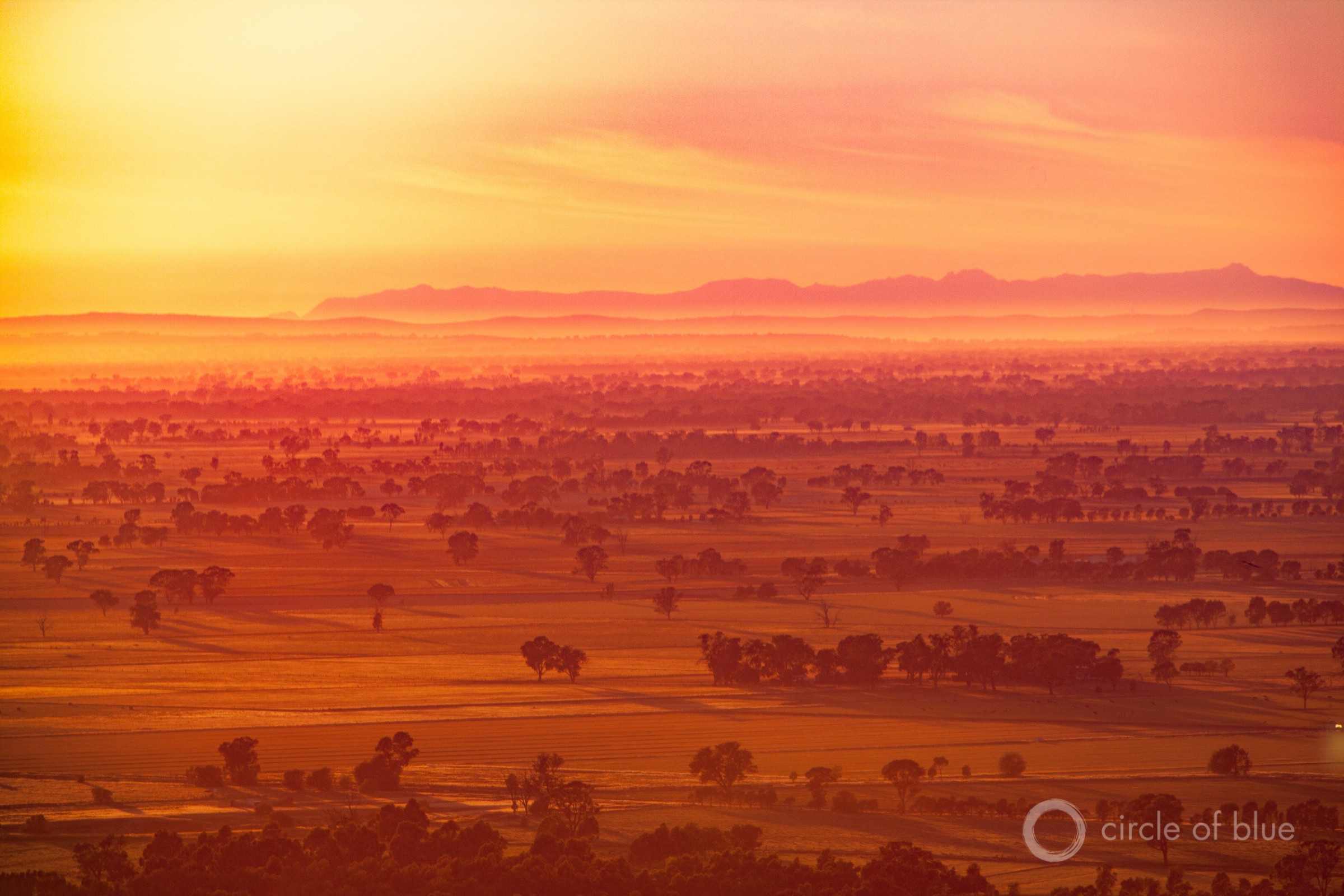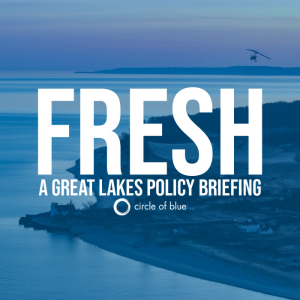The Stream, February 21, 2024: In Montana Groundwater Case, Judge Orders More Scrutiny of Proposed Housing Developments

Australia’s Murray-Darling basin. Photo © J. Carl Ganter/Circle of Blue
YOUR GLOBAL RUNDOWN
- Torrential rains in Bolivia have killed dozens, as landslides and flooding quickly followed one of the country’s hottest, driest winters.
- On Christmas Island, the migration of millions of red crabs was delayed for months due to a prolonged drought.
- Rain-on-snow events are becoming more frequent in the Arctic, exacerbating ice sheet melting.
- Boorowa, a small town near Australia’s capital of Canberra, has been under a boil-water advisory for nearly a month after filtration systems were compromised.
A Montana judge has ruled against the construction of a new housing subdivision near Helena, where groundwater shortages caused local outcry.
“The pendulum for the longest time was largely swinging in support of development at any cost. [The ruling] is a big moment for Montana land use policy.” — Guy Alsentzer, executive director of Upper Missouri Waterkeeper.
Residents near Helena, Montana, sued their county and the state after Errol Galt, a real estate developer, proposed the construction of a new 39-home subdivision that would use well water, the New York Times reports. The new homes, residents argued, would worsen existing water shortages. A district court judge agreed this week saying the development was based on “abjectly deficient” environmental reviews. The ruling, state officials say, sets a water-conscious precedent for future construction proposals in Montana, where many aquifers are decreasing.
— Christian Thorsberg, Interim Stream Editor
Recent WaterNews from Circle of Blue
- Water Depletion: A Pivotal Concern In Mexico’s 2024 Election — Of the country’s 32 states, 30 are experiencing dire water shortages, leading to big street protests
- Cancer-Related Disease and Deaths Spur Actions to Fight Farm Chemical Contamination in Corn Belt — Lawmakers and health officials in Iowa, Minnesota, and Nebraska are pursuing an array of new strategies aimed at reducing the risks to human health
The Lead
In Boorowa, a small town of 2,000 people located 90 minutes northwest of the Australian capital of Canberra, a month-long boil advisory has turned bottled water into a valuable trade commodity, The Guardian reports. It’s been used instead of cash during Facebook marketplace transactions, and restaurants have taken tap water off their menus.
In late January, heavy rains “compromised” the town’s filtration system, though locals say their water woes have existed for more than half a century. Supplied from a local river which flows through farmland, the drinking water has always had a bad taste, residents say.
There is no easy access to clean water — the city council chose to have water delivered via a pipeline whose intake point is more than 30 miles away. It will cost $60 million to extend the line another six miles, as is needed.
This Week’s Top Water Stories, Told In Numbers
100 million
Number of red crabs living on Christmas Island in the Indian Ocean. Beginning on the first rainfall of the season they complete a compelling migration from the forests to the sea. Usually the migration takes place in October or November, but unseasonably dry weather has stalled their movement for months, and left the island dry and dusty. Due to this drought, for the first time since their migration was first tracked in the 1980s, the crabs began their journey in February, Reuters reports.
289
Number of municipalities in Bolivia, out of 340 total, that have been placed under flood alerts amidst ongoing heavy rainfall. Tens of houses have been destroyed, several dozen people have been injured, and 33 people have been killed since November in landslides and floods. Local officials are closely monitoring dams and reservoirs, which threaten to overflow and could cause further damage, BBC reports.
On the Radar
As the planet warms, rainfall in the Arctic could rise by as much as 60 percent, a new study warns, a phenomenon which in the past was implausible. The rains are triggering permafrost thaw, avalanches, landslides, and “profound changes to water quality” for humans and animals alike, Yale Environment 360 reports. In many places, rain is more prevalent than snow. Indigenous ways of life are especially being disrupted, and the melting of Greenland’s ice sheet, whose summit first experienced rain in the summer of 2021, continues to be one of the main drivers of sea level rise globally.
More Water News
Libya Groundwater: A mysterious upsurge of groundwater has flooded homes and fields in the LIbyan town of Zliten, attracting mosquitos and leaving a repugnant smell, Al Jazeera reports. Officials hypothesize several causes, including broken pipes and poor drainage.
Dominican Trees: Drought, water mismanagement, natural disasters, and deforestation have strained water resources in the Dominican Republic — spurring local efforts to plant more trees and diversify crops as a way to increase the health of watersheds and return the country’s water cycle to a state of normalcy, BBC reports.
Christian Thorsberg is an environmental writer from Chicago. He is passionate about climate and cultural phenomena that often appear slow or invisible, and he examines these themes in his journalism, poetry, and fiction.






Leave a Reply
Want to join the discussion?Feel free to contribute!